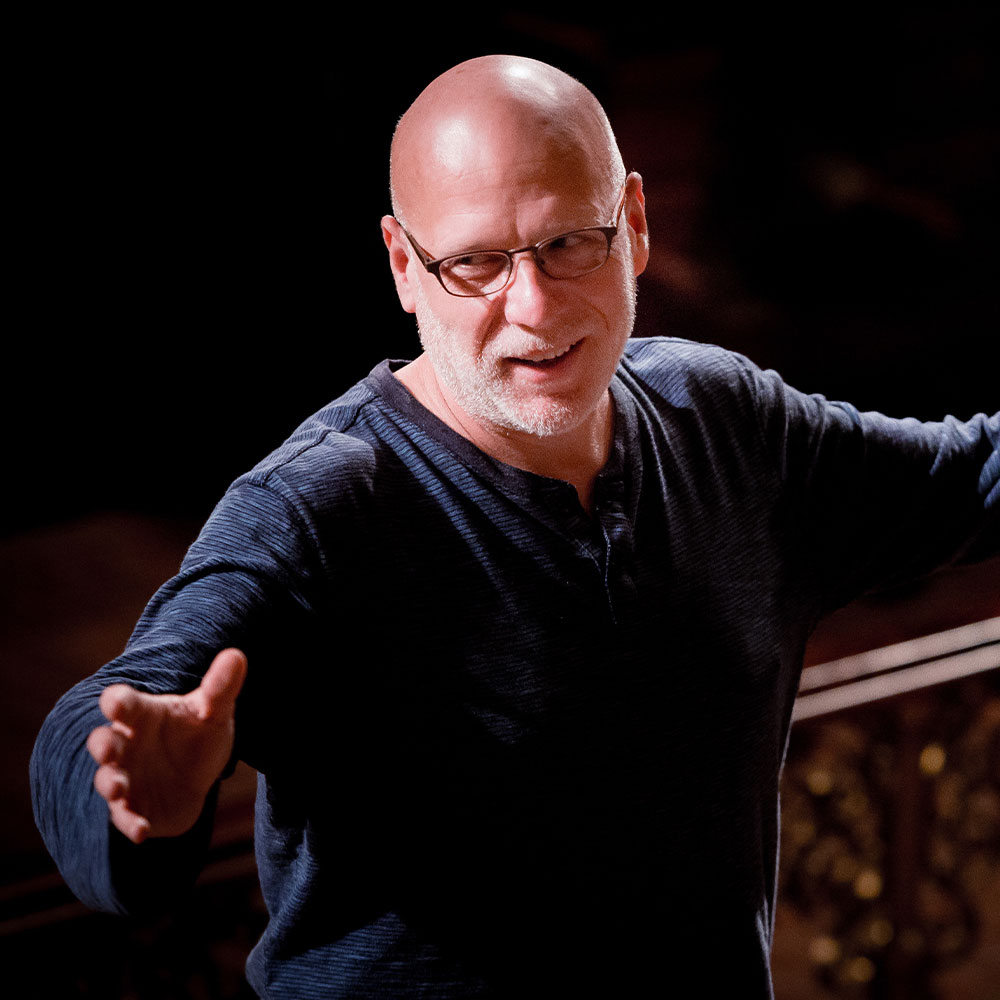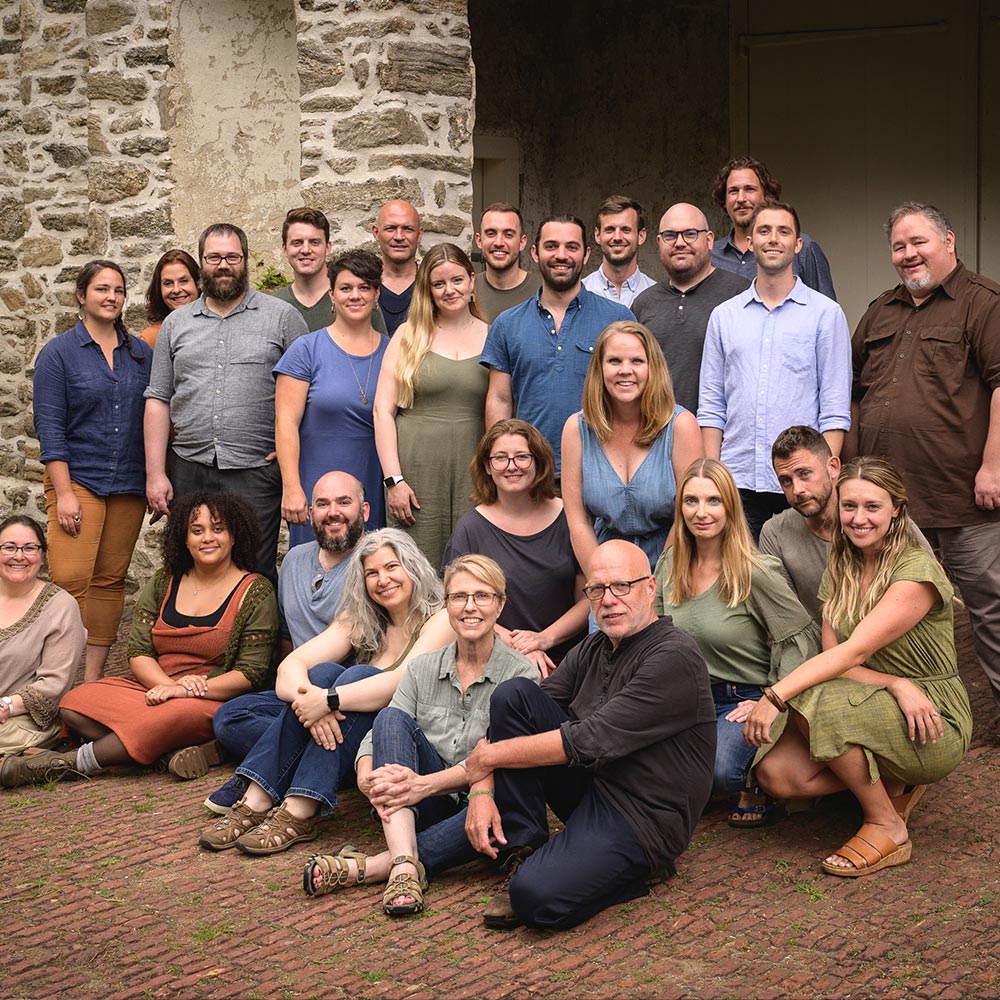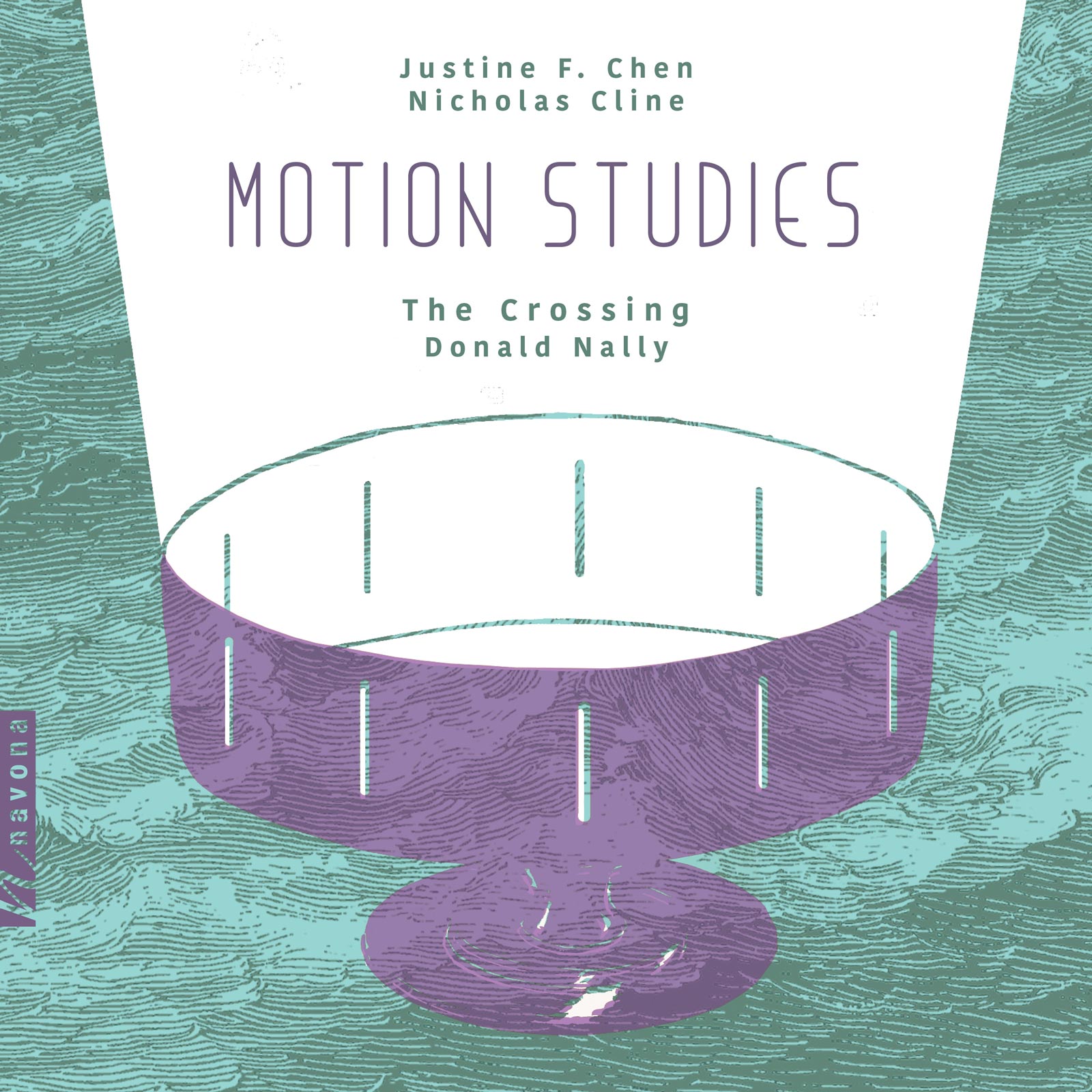
The Crossing, conducted by Donald Nally, returns to Navona Records with MOTION STUDIES: Justine Chen’s Shallow Breath and Stealth and Nicholas Cline’s watersheds. A 2024 Best Choral Performance GRAMMY® nominee and multi-GRAMMY® winning ensemble, The Crossing continually proves itself to be at the forefront of new choral literature and performance. MOTION STUDIES is a release not to be missed.
Today, Donald is our featured artist in the “Inside Story,” a blog series exploring the inner workings and personalities of our composers and performers. Read on to learn about the long history of poets, musicians, and historical figures that influence him the most, and how he’s learned to embrace his multifaceted artistic roots…
Where and when are you most creative?
In Alain de Botton’s wonderful book, The Art of Travel, he notes, “Journeys are the midwives of thought. Few places are more conducive to internal conversations than a moving plane, ship or train.” I would add to this “the shower, staring at the ocean, watching clouds” — places where I am free of distraction and of the person that we become when we’re in the presence of any other person. For me, almost everything in life, including art, is about solving problems. So, these places are where I problem-solve. I think about programming, about presentation, about direction. I compose music or words — answers to questions like this — and then write them down later. In this way, creativity is inseparable from problem solving; how to find the way to say the thing.
How do you prepare for a performance?
I don’t think of what I do as performing. And I don’t do anything special, except that sometimes I eat a muffin and drink coffee to have a nice energy jolt. I usually don’t dress much differently for a concert than for “not a concert.” Just before a show, I’m often giving a pre-concert talk or gabbing with friends in the audience. For us, a concert is just “what we do every day” with the doors open and friends coming in to hear what we’re up to.
What advice would you give to your younger self if given the chance?
- Don’t listen to advice from other people.
- Almost nothing matters; in fact, statistically, when viewing the universe, Earth doesn’t matter. We certainly don’t.
- On the other hand, in view of our tendency to destroy things, I’d like to have understood how religions with sky gods tend to release the followers from responsibility for their world.
- People are complex, and groups of people don’t act like individuals. As a leader, most issues are not a reflection of you (though, have some good, candid friends who let you know when they are). Don’t take “it” personally.
- Art doesn’t have to do anything.
- Relationships are important, and Clarence is right, “No man is a failure who has friends.”
- Don’t spend a lot of your time answering questionnaires.
If you weren’t a musician, what would you be doing?
I’d be dead.
Music is a faithful companion. We can trust it; in fact, we can beat it up pretty badly and it’s there the next day, acting as if we hadn’t had a fight. It tells us things — about ourselves, and also about it (if, in fact, there’s a difference between “me” and “it”). It doesn’t actually exist; it is waves. And we don’t need those waves either; we can hear it in our heads without waves. We’ll never truly accomplish it; it challenges us to force ideas into style. Like words, the expressive element of its language can’t be notated. It’s like a life partner; despite our intimacy, we can never truly know everything about them.
I don’t see any reason to consider other things to do with my day.
How have your influences changed as you grow as a musician?
There are so many artists that have truly influenced me. I’ve learned from everyone I work with — what I could potentially be/do, and what not to be/do. A few influences (mostly people I don’t know): Whitman, Hart Crane, Jaime Sabine, Philip Levine, Nina Simone, Tom Stoppard, Seneca, Sam Shepard, Toni Morrison, Richard Feynman, Benoit Mandlebrot, the Tao, Jesus of the Gospel of Thomas, Shakespeare, Peter Sellars, Peter Brook, Mamet… It all adds up to how I hear a piece.
I suppose what has changed over years is that I’ve embraced the simplicity of who I am as an artist. I grew up in the country, I didn’t listen to Classical music as a child, though I sang and played instruments. I didn’t listen to a lot of pop music either, but what I did listen to was profoundly influential: Elton John, Queen, the Carpenters, and Streisand (again). And I can see how those singing styles, and the relationship to the beat in that genre (significantly different than in a lot of music I’ve studied and conducted), and the rhythmic fluidity, have helped form my idea of how music goes, or, at least, who I am in it. In recent years those earlier influences are more present in my music-making, and more synthesized. Also, over the last 20, I’ve changed the way I hear sung English; I’ve embraced my American dialect; and I’ve focused the topics I want to “sing” on more specific aspects of the human condition.
If you could collaborate with anyone, who would it be?
This question changes daily, which is not to imply I think about it daily.
Today the answer is Bach, assuming “anyone,” doesn’t necessarily mean “anyone living.” I know I’d be embarrassed by my lack of… well, compared to him, everything, but I’d love to learn from him — to see how his mind works. He must have had enormous confidence and not taken any one performance or other as terribly special. His life must have been very messy. We know he could get really frustrated and angry. I’d like to be in the room to see if his approach was one of grace or rough edges and whether he approaches his own music with grit or if those were his calm moments. I’d like to sing with him. It’s not necessarily because I’d like to do Bach’s music better, though that would be a lovely outcome, but that I want to be a better artist, citizen, and friend, and I think that working with a person with a brain that large, who also in some ways “speaks my language,” would offer a lot in that journey.
And it would also solve some tempo questions that remain elusive.
But that’s today.
Tomorrow, it could be Streisand. Or Bergman. Or Hockney.

Donald Nally collaborates with creative artists, leading orchestras, and art museums to make new works for choir that address social and environmental issues. He has commissioned over 180 works and, with The Crossing, has 29 recordings, with two Grammy Awards and eight nominations. Nally has served as chorus master at the Lyric Opera of Chicago, Welsh National Opera, Opera Philadelphia, and the Spoleto Festival in Italy.

The Crossing is a GRAMMY®-winning professional chamber choir conducted by Donald Nally and dedicated to performing new music. It is committed to working with creative teams to make and record new, substantial works for choir that explore and expand ways of writing for choir, singing in choir, and listening to music for choir. Many of its nearly 150 commissioned premieres address social, environmental, and political issues.

